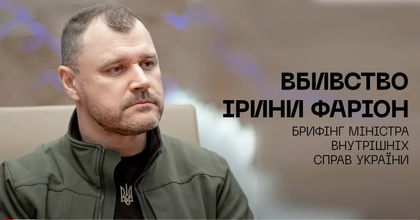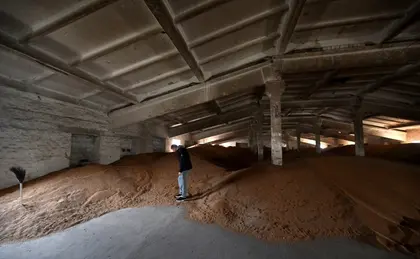In the wake of protests by farmers who are struggling under the pressure of competition from cheap agricultural goods imported from Ukraine, Hungary and Slovakia have followed Poland in suspending imports of Ukrainian products, in particular grain. The EU Commission has criticised the move, insisting on its sole competence in trade matters. Europe's press sees a number of problems arising here.
Harmful for Poland's image
Warsaw is showing its allies that the Polish government cannot be relied on, Rzeczpospolita fumes:
JOIN US ON TELEGRAM
Follow our coverage of the war on the @Kyivpost_official.
“This move by the PiS could put an end to the period of good press Poland has enjoyed in the world due to its aid for Ukraine. This was a source of national pride but also of soft power, something PiS politicians benefited from during their visits abroad. Now Poland is sending out signals that it will do whatever it takes to secure its voter base, even stab embattled Ukraine in the back.”
Ambivalent trade
Pravda is ambivalent because Slovakian mills have also done well from these imports so far:
“After the war more than doubled wheat prices, they needed cheaper flour. It was only a matter of time before the grain showed up in Slovakian mills. However there is a catch: Ukraine, a hot EU accession candidate that has been given a free pass when it comes to exporting agricultural products, doesn't pay as much attention to the rules on the use of chemicals. ... It's one thing to create a solidarity corridor, to send grain to the inhabitants of starving countries, but it's quite another to watch this goal not being achieved and solidarity being abused for lucrative business.”

Farion’s Killer Prepared Disguises, Had Another Victim in His Sights, Interior Minister Says
Authorities fuelled speculation
The agricultural products definitely ended up in the wrong hands, Népszava criticises:
“The EU and national authorities - including Hungary's - have opened the way for speculators and profiteers, who quickly bought up the Ukrainian farmers' stocks of grain, sugar, honey, poultry and eggs and flooded the EU markets with them. ... The original goal, namely that EU countries should only serve as a transit route for Ukrainian products on their way to African and Asian countries, was hardly realised.”
Entirely understandable
Analyst Cristian Untenanu shows understanding for Poland and Hungary in Adevărul:
“National exceptions are an option in exceptional situations, when governments make justified requests because the lives of citizens or their country's basic security interests are at stake. ... Traditionally, this type of argument has been used to justify the reintroduction of border controls [in the Schengen Area] in moments of crisis, during successive waves of illegal migration. In the present case the two capitals are angry about the EU Commission's lack of reaction to the grain problem. ... Poland and Hungary had warned several times of the possibility of a crisis of national impact.”
A threat to Eastern European agriculture
Erdélyi Napló fears long-term consequences:
“Officials in Brussels are reassuring European farmers that the export dumping from Ukraine in recent months has been a one-off. ... The big question is how much Brussels can be trusted. ... Because even if things develop optimally, it will take years for Ukraine, which is seeking EU accession, to catch up with EU standards in agricultural production. And until then Ukrainian dumping prices could bring Eastern Europe's agricultural sector crashing down. The West, however, is likely to see this as collateral damage in the service of 'higher' military goals.”
Reprinted with permission from Eurotopics. See the original here.
You can also highlight the text and press Ctrl + Enter






